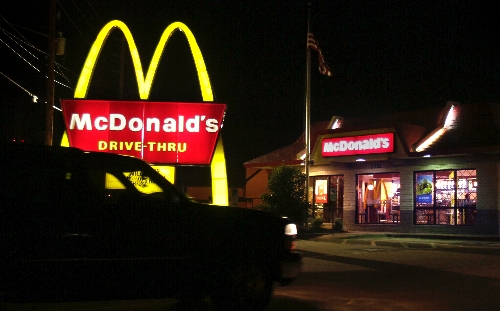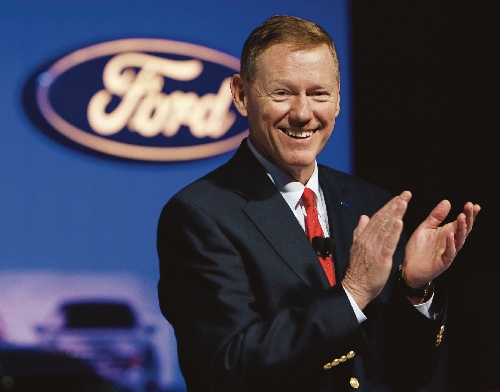IN BRIEF
NEW YORK
Wireless industry sues city over cell-phone radiation law
The wireless industry sued the city of San Francisco on Friday to stop a law that requires cell phone stores to post how much radio energy each model emits.
It's the first law of that kind in the nation. The industry trade group known as CTIA -- The Wireless Association said the law will mislead consumers into thinking that one phone might be safer than another on the basis of radiation measurements.
Studies have not conclusively found that cell-phone radiation is a health risk. Research continues on brain tumors.
The city attorney's office had no immediate comment on the lawsuit.
NEW YORK
Treasury to sell 1.5 billion shares of Citigroup stock
The Treasury Department said it will sell 1.5 billion shares of Citigroup stock over the next two months, the latest effort to recoup money from the government's $700 billion financial bailout.
The third phase of Citigroup stock sales will begin immediately and end by Sept. 30, Treasury said Friday. The government has already sold 2.6 billion shares for $10.5 billion.
Citigroup received $45 billion in taxpayer support in one of the largest bank rescues by the government. Of the $45 billion, $25 billion was converted to a government-ownership stake. The government is now selling that off. The bank repaid the other $20 billion last December.
CHICAGO
Bargain-hunting diners spark increase in McDonald's profits
Net income climbed 12 percent at McDonald's Corp. in the second quarter as customers around the globe gobbled up its cheap food and U.S. diners responded to its profitable frappes and other drinks on its hit McCafe menu.
The world's largest hamburger chain also got a boost from business in China and Australia.
For the three months ended June 30, McDonald's earned $1.23 billion, or $1.13 per share. That's up from last year's net income of $1.09 billion, or 98 cents per share.
Revenue rose 5.3 percent to $5.95 billion from $5.65 billion.
NEW YORK
Wal-Mart to put electronic tags on men's clothes for inventory
Wal-Mart Stores Inc. is putting electronic identification tags on men's clothing like jeans starting Aug. 1 as the world's largest retailer tries to gain more control of its inventory. But the move is raising eyebrows among privacy experts.
The individual garments, which also include underwear and socks, will have removable smart tags that can be read from a distance by Wal-Mart workers with scanners. In seconds, the worker will be able to know what sizes are missing and will also be able tell what it has on hand in the stock room. Such instant knowledge will allow store clerks to have the right sizes on hand when shoppers need them.
The tags work by reflecting a weak radio signal to identify the product. They have long spurred privacy fears as well as visions of stores being able to scan an entire shopping cart of items at one time.
Wal-Mart's goal is to eventually expand the tags to other types of merchandise but company officials say it's too early to give estimates on how long that will take.
DEARBORN, Mich.
Ford posts $2.6 billion profit, fifth straight quarterly rise
Four years ago, Ford mortgaged everything down to the blue oval logo to save itself. Now, even as Americans remain skittish about the economy, it's reaping big rewards and stealing business from stumbling rivals.
Ford said Friday that it made $2.6 billion from April through June, its fifth straight quarterly profit. The company, which reported record losses in 2008, now predicts it will end 2011 with more cash than debt.
In the past year, Ford has gained a bigger share of the American market, the equivalent of about 154,000 cars and trucks.
Rivals Toyota, General Motors and Chrysler have all lost ground.
Ford's second-quarter revenue rose 14 percent to $31.3 billion. Its profit was 61 cents per share, 8 cents less than a year ago, when a big debt payment reduced Ford's interest payments.
President and CEO Alan Mulally said the company is ahead of where he thought it would be in its turnaround.
It now sells the most popular pickup truck in the U.S., the F-Series, and the most popular crossover SUV, the Escape.
However, the company is cautious about weaker demand for its cars and trucks at home.
It cut its forecast for total U.S. sales to between 11.5 million and 12 million on Friday. Previously, it had predicted sales of up to 12.5 million.
LOS ANGELES
Space tourism rocket may
fly free in first glide test
Virgin Galactic's space tourism rocket SpaceShipTwo may fly free in its first glide test later this year, a company official said Friday.
The six-passenger spaceship has been carried aloft three times attached to the wing of its special jet-powered mothership. That includes a July 15 flight with two pilots aboard for the first time.
That flight, conducted by spaceship-builder Scaled Composites LLC over California's Mojave Desert, allowed the crew to evaluate all systems and functions in the air, said Stephen Attenborough, an executive with Sir Richard Branson's Virgin Galactic in London.
MUMBAI, India
Now that's cheap: India unveils prototype of $35 computer
It looks like an iPad, only it's 1/14th the cost: India has unveiled the prototype of a $35 basic touch-screen tablet aimed at students, which it hopes to bring into production by 2011.
If the government can find a manufacturer, the Linux operating system-based computer would be the latest in a string of "world's cheapest" innovations to hit the market out of India, which is home to the 100,000 rupee ($2,127) compact Nano car, the 749 rupees ($16) water purifier and the $2,000 open-heart surgery.
The tablet can be used for word processing, web browsing and videoconferencing. It also features a solar power option.


















